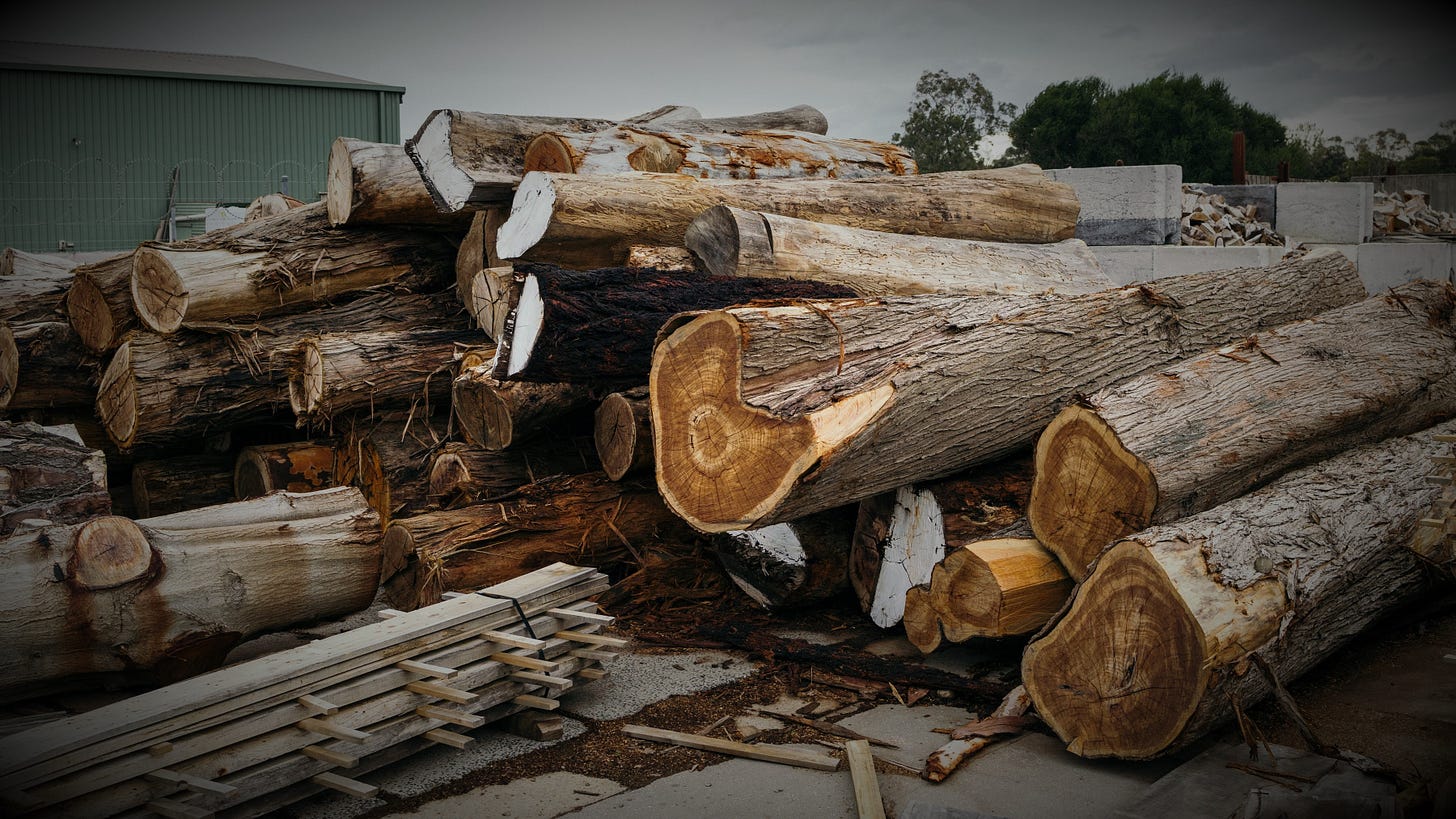Is making bad for the planet?
Considering the environmental effects of creating
It's no secret that I love making. Wood, metal, plastic - these are the materials that fuel my passion. Without them, I could not create the things I do. But does being a maker take too large a toll on the environment? After all, I love Mother Earth as well, and without her, we're all doomed. Is there a way to reconcile my creative drive with our fundamental need for a healthy planet?
Curious, I did a little research on wood, metal, and plastic production. There are better choices I could be making and I'll be doing more of these in the future. I hope you will too.
Wood
On the plus side, wood is renewable, a carbon sequester-er that releases little in the way of toxic waste. And sawdust is compostable and can be repurposed into other materials. But there are many bad things about using wood too.
Unsustainable logging is the worst of them. And many wood products are processed using nasty chemicals like formaldehyde. Manufacturing and using engineered wood releases toxic agents, as a result.
The best bet is to use unprocessed, sustainable lumber. Wood grown for harvest mindful of forestry's environmental impact is possible. And third-party certifiers like the Forest Stewardship Council (FSC) validate these suppliers.
Engineered lumber can be sustainably produced as well. Materials like plywood using FSC certified woods and low VOC glues are great. Going local is even better, reducing worldwide shipping that takes a boatload of fuel.
Metal
Nothing beats the strength and durability of metal, particularly steel and aluminum. But these materials are mined and refined in ways that take a heavy toll on the planet. If you've ever seen a strip mine or visited a foundry, you know what I mean.
But once extracted and produced, metals are infinitely recyclable. Today, many metal products come from recycled material, making them a sound choice. If buying new, look for labels that tell the recycled content or ask if it's not shown.
Better still, pick up scraps and ends at a local metal recycling yard. It's a fantastic way to get metal for your next project. Best of all, doing so cuts down on emissions from processing and re-refining. Reusing materials like this is always preferable to new or even recycled.
Plastics
The world would not be what it is without plastics. From kitchenware to cars, clothes to buildings - plastics are everywhere. Did I say everywhere? Yes, they are everywhere - including in our water, our food, and our kids too.
These lightweight and durable polymers are killing our planet, one hydrocarbon chain at a time.
Honestly, the best way to use plastics environmentally is not to use them at all. While many are inert once made, they will break down and end up as microplastics, polluting our water and soil. But plastics are here to stay and are fundamental to modern society - there's no avoiding them.
Learning to use and dispose of plastics properly is our best bet for now. It's one of the things we can do as a modern society to limit their environmental repercussions.
Reusing plastic is an ideal way to keep it locked up and safe. Makers can do so by picking up scrap from fabricators and recyclers instead of buying new. These off-cuts and waste are otherwise recycled, or worse still, discarded. But as with metals, if you can reuse plastic instead of recycling, it's better. Reusing eliminates the fuel and reagents needed to re-process plastic into raw stock.
Be mindful of plastic dust created in your work. Contain and discard it well. Don't let it blow across your shop and out the window, for example. Instead, vacuum it up and contact your local waste facility for info on how best to handle it. The less that ends up outside, or even in a landfill, the better off we all will be.
Making is an incredible joy for many of us. And while it is a consumptive endeavor, it need not be an environmentally damaging one. Take the time to read up on the materials you use and learn to acquire, use, and repurpose them appropriately. With a bit of forethought, makers can be a net-positive for the world of today - and tomorrow.
Until next time.
JRC


